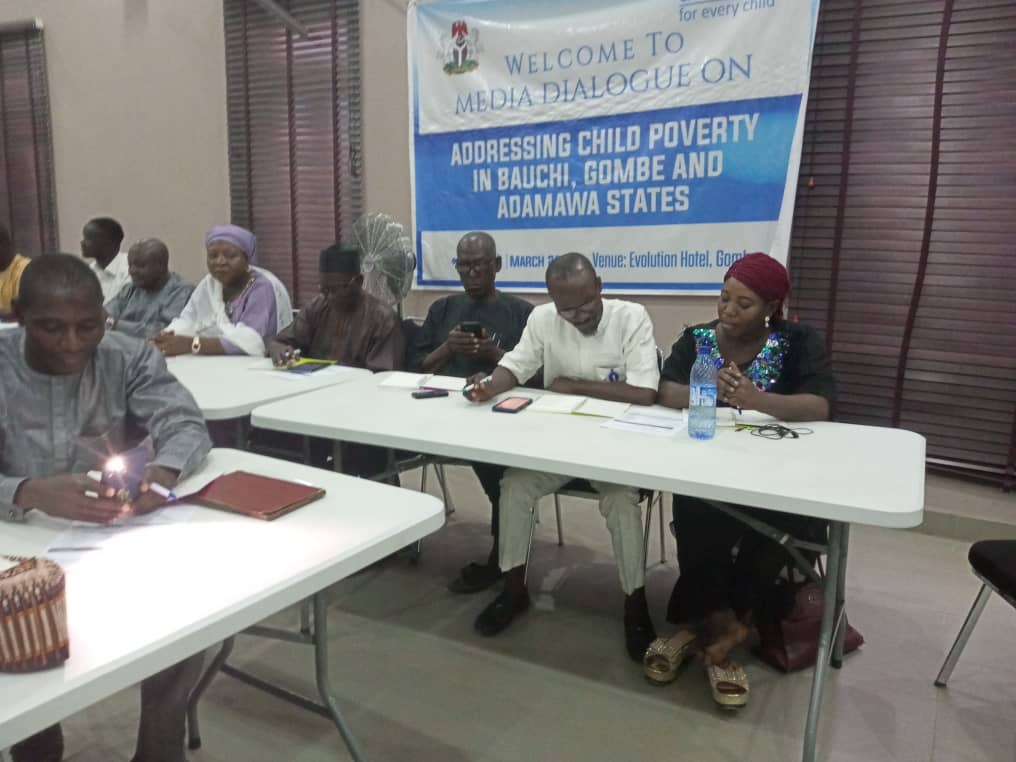Published
1 month agoon

From WILLIE ATTAH, Gombe
A two day meeting organised by the Bauchi Field Office of UNICEF with experts on social policy, as well as journalists from Adamawa, Bauchi and Gombe, have called on states to put in place better social policy as a way of tackling child poverty.
At the meeting, held in Gombe, participants were exposed to issues that trigger child poverty which has become a major threat to children’s wellbeing and future.
During the session, it was also discovered that child poverty impacts national and regional socio-economic development while implementable approaches were proffered for government and stakeholders to employ to address child poverty in Nigeria, specifically Adamawa, Bauchi and Gombe states.
Earlier in his goodwill message, the Gombe State Commissioner for Budget and Economic Planning, Salihu Baba Alkali, decried that despite the huge potentials in the northeast region, it has been contending with poor human development indicators in virtually all areas because of the activities of insurgents.
According to him, “There has been massive influx of people from conflict areas around the state, a situation which has affected the impact of the modest gains the government had made especially on social policies with regards to children.”
He said, “In this regard, the government and people of Gombe, Adamawa and Bauchi states are overwhelmed by this development as it is timely to brainstorm and harness ideas on how to tackle the menace and reduce the indices of child poverty in the region.”
He commended UNICEF for their tireless support, especially in the northeast states of Gombe, Bauchi and Adamawa towards child protection policies.
During the technical session of the meeting, Dr Yusuf Auta, UNICEF Social Policy Specialist, Bauchi Field Office, enlightened journalists on what child poverty is and its drivers as well as the multidimensional child poverty in Adamawa, Bauchi and Gombe states, using recent poverty statistics as it affects children.
Using reliable statistics, Yusuf called for children sensitive budgets and releases, as well as doing away with socio-cultural impediments that stand as barrier against adequate welfare for all children.
In his presentation, Dr. Madina Dankumo, a lecturer in the Department of Economics and Development Studies, Federal University, Kashere, Gombe State, spoke on the effects of child poverty on the socioeconomic development of Nigeria.
He also spoke on the interplay of multidimensional poverty with children’s rights to education, health, protection among many others and concluded that the task of addressing child poverty is for all members of the community through entrenching policies and programmes that carry children along.







